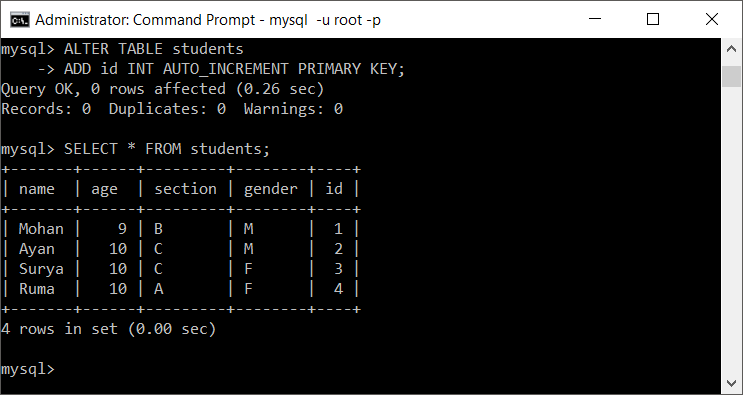

Some database engines, such as the Microsoft Access Jet database engine, do not support output parameters and cannot process multiple statements in a single batch.
#Mysql sum all values in column with primar ykey update
ADO.NET can retrieve these values and update the corresponding columns in the DataRow being updated. Having the server generate automatically incrementing values eliminates potential conflicts by allowing each user to retrieve the generated value for each inserted row.ĭuring a call to the Update method of a DataAdapter, the database can send data back to your ADO.NET application as output parameters or as the first returned record of the result set of a SELECT statement executed in the same batch as the INSERT statement. However, you might end up with duplicate values in separate instances of a DataTable, if multiple client applications are independently generating automatically incrementing values. In SQL Server, you set the identity property of a column, in Oracle you create a Sequence, and in Microsoft Access you create an AutoNumber column.Ī DataColumn can also be used to generate automatically incrementing values by setting the AutoIncrement property to true. These values are generated by the server as rows are added to a table. Relational database engines, such as SQL Server, Oracle, and Microsoft Access/Jet support the creation of automatically incrementing columns that can be designated as primary keys. Knowing the primary key value allows you to locate the row that contains it. A primary key in a relational database is a column or combination of columns that always contain unique values.


 0 kommentar(er)
0 kommentar(er)
